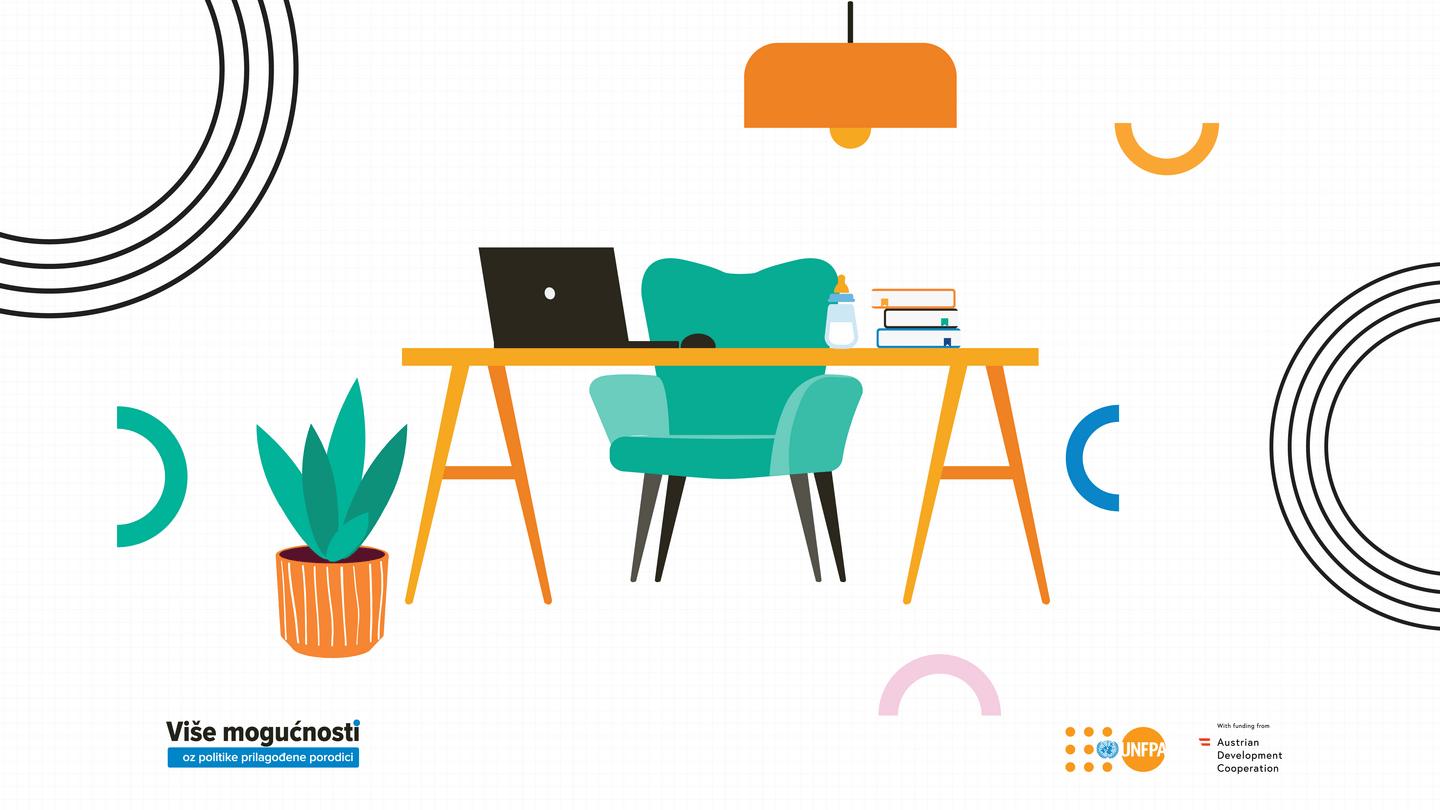A Shift Towards Inclusive and Productive Workplaces
Across the region, traditional gender roles have often presented a challenge for women seeking to enter or remain in the workforce. The unequal distribution of family responsibilities, coupled with a lack of employer support and government policies, has made it difficult for women to balance career aspirations with family life. This can lead to women having fewer children than desired or being unable to reach their full professional potential.
Data reveals that women in Serbia continue to shoulder a disproportionate burden of unpaid care. According to the report by the Statistical Office of the Republic of Serbia “Women and Men in the Repubilc of Serbia”, women in Serbia spend twice as much time on unpaid domestic work as men, regardless of their employment status. This often translates to employed women working a "second shift" at home. The data also shows that a larger percentage of women (52.1%) are outside the labor force in Serbia compared to men (36.4%). When looking at reasons for working less than full-time, women predominantly cite caring for children or persons with disabilities (93.7%), while men most often report the inability to find full-time employment (63.7%).
This is why UNFPA, with support from the Austrian Development Agency (ADA), is partnering with the private sector and the Government of the Republic of Serbia to champion gender-responsive family policies. Evidence shows that such policies – both at the national level and those implemented by the private sector – are powerful tools to shift discriminatory gender norms and redistribute unpaid care work so that both men and women can realize their career aspirations and their fertility intentions.
Family Friendly Workplace Model in Practice
In 2024, "Expanding Choices" project started working with the private sector in Serbia to pilot and promote a family-friendly workplace model. The model includes strategies, activities and tools, and supports companies in designing, implementing and monitoring gender responsive family policies in the workplace. The model focuses on families, rather than solely on parents, as it recognizes that unpaid care work is not limited to childcare.
Companies such as CNT, GDi Solutions, IKEA Serbia, Intens, Ribella Foods, SDPS, TGRS, Yettel bank and Flow Ninja are adopting practices that either strengthen their already adopted family-friendly measures or are piloting new initiatives within the project. These initiatives demonstrate a powerful shift: businesses are recognizing that supporting families is not just good ethics—it’s smart economics. A balanced work-life culture fuels innovation, loyalty, and growth.
New initiatives introduced within the project show how workplaces are taking family support even further:
- Family Day Initiatives have been established, offering employees the chance to celebrate International Family Day each year with their family—spouses, children, parents, friends, and even pets.
- Flexible Working Hours are now available for employees with disabilities and for those with family members requiring medical care, ensuring better accommodation of personal and caregiving responsibilities.
- Providing continuous mentoring support to mothers before, during and after maternity leave, helping to ease their transition back into the workplace.
- Paid Sick Leave Without Documentation has been made available, granting employees the flexibility to take care of their health or their children's health without added administrative burdens.
- Clear Communication of Rights and Benefits through structured instructions on working hours, leave entitlements, and flexible policies has been prioritized to ensure every employee fully understands and accesses their benefits.
Family-friendly workplaces are essential for building a society where everyone has the opportunity to thrive, both at work and at home. By bringing together key stakeholders, including Government institutions and private sector leaders to promote the adoption of family-friendly policies across Serbia, the initiative is driving systemic change and creating a more supportive environment for families.
The activity is carried out by the United Nations Population Fund (UNFPA) in Serbia in collaboration with the Government of the Republic of Serbia and private sector, with active support from the Ana and Vlade Divac Foundation within the project "Expanding Choices: Gender-Responsive Family Policies for the Private Sector in the Western Balkans - Phase 2" with financial support from the Austrian Development Agency.
For more information about UNFPA’s “Expanding Choices” project and the Champion Companies working to strengthen gender-equal and family-friendly policies, please visit the link.


